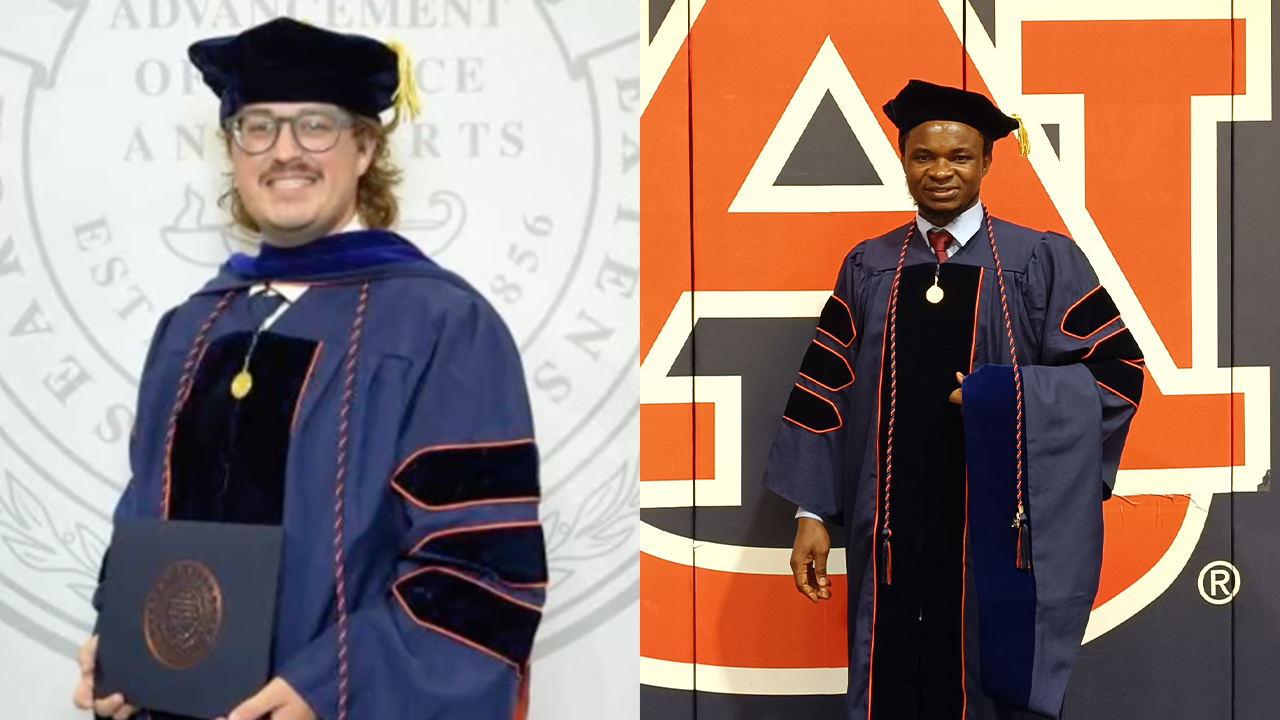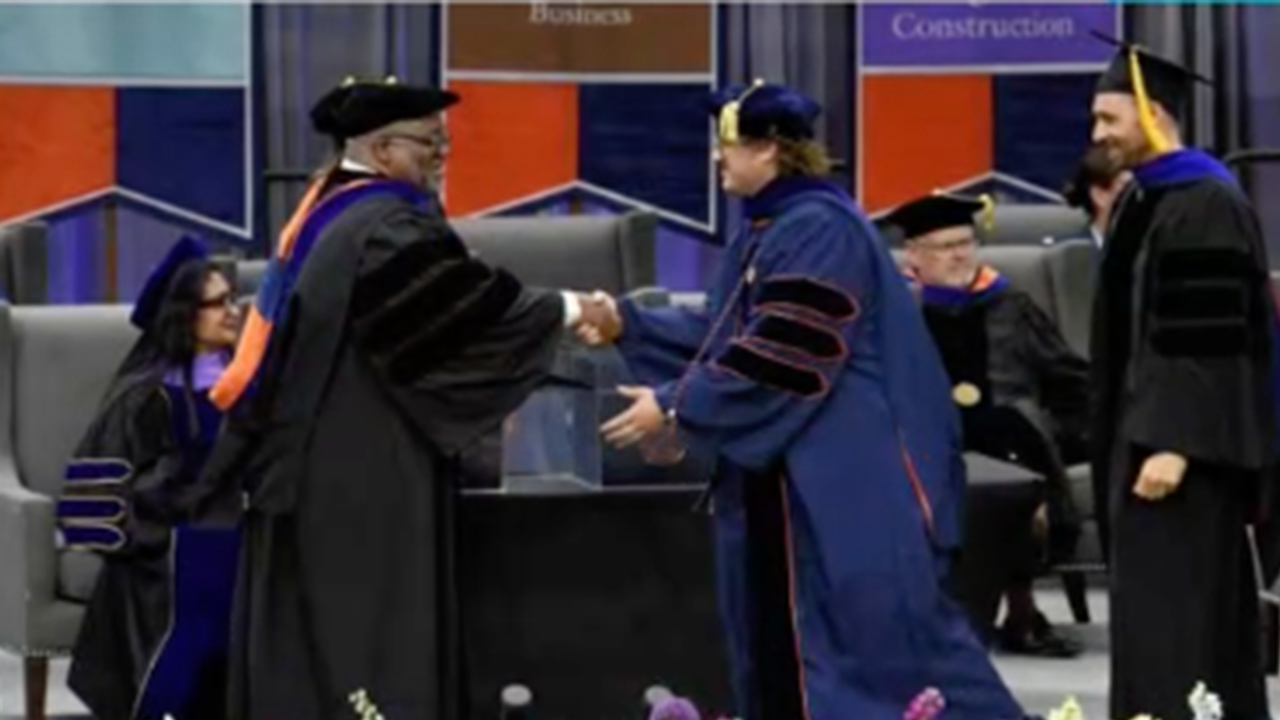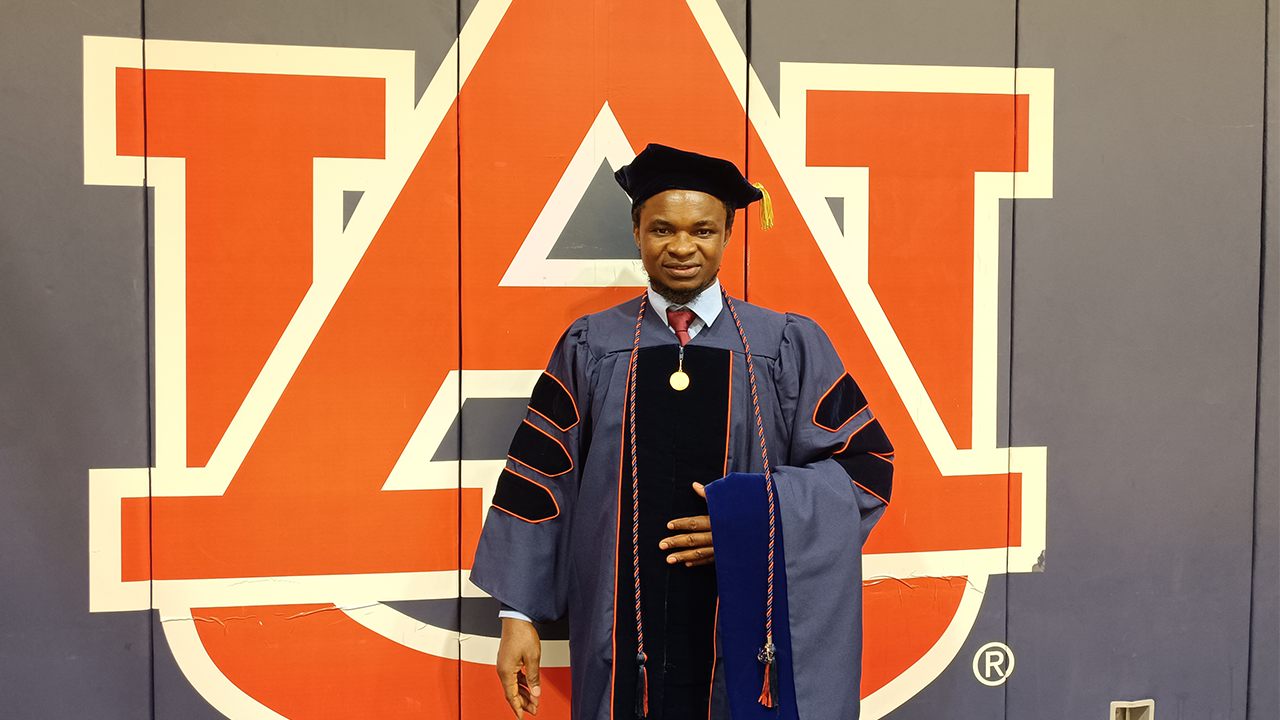content body

Jordan Eckert and Ogonnaya Michael Romanus are the first graduates of Auburn's new data science doctoral program.
As data shapes decisions in health care, technology and nearly every part of daily life, Auburn University’s College of Sciences and Mathematics has launched a degree built for the moment.
This summer, the Department of Mathematics and Statistics celebrated the first graduates of its new doctorate in statistics and data science — a program designed to prepare experts who can navigate both the deep theory of statistics and the fast-moving tools of modern data science. The degree is the first of its kind in Alabama and among only a handful nationwide.
Ogonnaya Michael Romanus and Jordan Eckert have the distinction of being the program’s inaugural graduates. For them, the degree represents advanced training that is as practical as it is theoretical, equipping them to solve complex problems in a world overflowing with data.
Romanus’ journey to Auburn began more than 5,000 miles away in Nigeria, where he had already earned multiple degrees in mathematics. A workshop led by a visiting Auburn professor introduced him to the university, and the combination of a welcoming community and strong research reputation sealed his decision.
As plans for the new statistics and data science doctorate took shape, Romanus saw a chance to align his studies with the growing demand for expertise at the intersection of statistics, machine learning and artificial intelligence. His work centers on developing methods to analyze sensitive datasets without violating privacy and creating prediction models that account for uncertainty — research with applications from government census data to medical diagnostics.
“There’s a lot of innovation in the area of AI, and statistics is one of the building blocks,” he said. “I already had the basis, so I just needed to incorporate the computer aspect of it. It’s a very nice program because you get the skills you need to be able to compete in data science and machine learning.”
Romanus recently moved to Chicago to begin work as a data modeler with Discover, applying the skills and knowledge he developed at Auburn to industry challenges.
Eckert, a Georgia native, joined the department in 2019, earning his master’s degree during the height of the pandemic. He decided to stay on for the doctorate, drawn by the quality of the faculty and the program’s forward-thinking approach.
“The professors here are some of the foremost experts in their field,” he said. “They’re knowledgeable, but they’re also just genuinely good people. In the math and stats department, it really does feel like a little family.”

Jordan Eckert shakes hands with COSAM Dean Ed Thomas at summer graduation.
Eckert’s research focuses on developing algorithms to group data in challenging scenarios, such as when datasets are unbalanced or overlapping — a growing need in industries working with massive, imperfect data.
“I’m very proud of the steps this department has taken,” Eckert said. “Auburn’s putting itself in a position to become a leader in this space.”
The program is the result of years of work by faculty, led by Professor Nedret Billor, director of the statistics program. Billor has spearheaded efforts to expand Auburn’s data-focused offerings, from launching a joint master’s in data science and engineering with the Department of Computer Science and Software Engineering to creating an accelerated bachelor’s-to-master’s pathway.
“I’m delighted to see Auburn launch a doctorate program in statistics and data science, and our students are also enthusiastic and happy with the program,” Billor said. “Being in the math department strengthens our program because you need strong mathematics in those fields.”
A signature element of the program is its capstone course, where students collaborate with industry partners like GE Aviation, Southern Power and New York Life Insurance to tackle real-world problems. These partnerships not only give students practical experience with complex data, but also connect them directly to the types of projects they might encounter in the workforce.
“Our students gain excellent hands-on experience,” Billor said. “It’s exactly the same as working in a company.”
As Billor looks ahead, she is confident the new doctorate will help Auburn lead in a field that is shaping industries, government and everyday life.
“We are preparing our students to be ready for the new world that we are facing,” she said.
For the department, Romanus and Eckert’s graduation marks both a milestone and the beginning of what’s possible.
“I’m the first in my family to get a doctorate,” Eckert said. “I’m very proud of these degrees from Auburn. They’re something no one can ever take away from me.”





